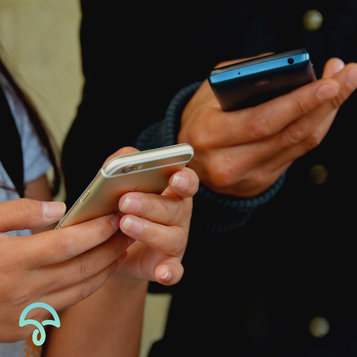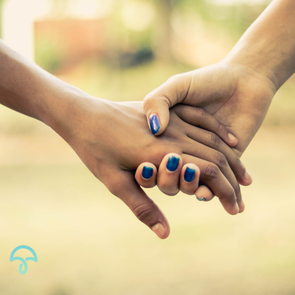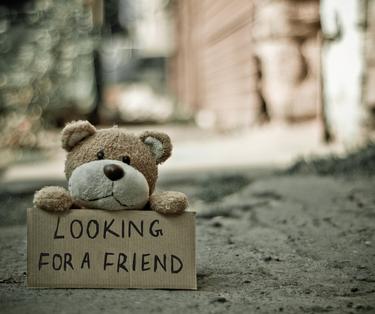Trauma Bonding: What Is It & Why Is It So Hard To Leave Trauma bonding is a complex web that entangles individuals in abusive relationships, making it tough to break free. But what exactly is trauma bonding, and why is it so hard to leave? In this article, we explore these questions, diving into the definition of trauma bonding, identifying common signs, and uncovering the deep-seated reasons that make leaving such relationships a daunting task.
0 Comments
What is Self-Abandonment? 5 Examples and How To Stop It Are you the type of person who is always trying to make other people happy, even at the cost of your own happiness, needs, and feelings? Are you somebody who says "yes", even though you really want to say "no"? Or, are you a person that does things that you actually do not agree with? Or, perhaps you find yourself going along with other people's desires? If that is the case, then you probably fit in what we call self-abandonment. This is a very new term that we are nowadays seeing often in social media and in the psychology world; but it indeed is a real and very helpful concept. It encompasses a behaviour that has been observed by a lot of psychologists in their therapy rooms. And, most importantly, it is a set of traits that largely affects our mental health and our relationships. So, in this article, we will discuss what self-abandonment is, some common signs, and how to stop abandoning yourself.  Feeling lonely is not the same as being alone. You can be among other people, your partner, your family and still feel lonely. You can be all by yourself and yet, not feel lonely at all. Contrariwise, you can feel in peace, connected, calm, joyful, satisfied with your life, you name it. So, what is loneliness then? How addicted are to our phone? I was sitting in waiting the dentist the other day. It was full of people waiting to be treated. I had not forgotten to take my mobile phone with me, so I was looking around the room; posters, pictures, and magazines. I then turned my attention to the people sitting. All of them apart from a more elderly lady were looking at their mobile phones. I thought to myself, "at least I am not the only person not connected to my phone". Then a few seconds later the lady gets her phone out and starts texting. And here I am alone among people buried in their phones, not acknowledging each other. There was something about this experience that made me step back a little and think about the role of technology in our lives and how it can enable but also disable our genuine connections with others.  Mental wellbeing and inner balance are not a luxury. They are a necessity. In a world of constant worrying, being busy, commuting, changing and adjusting, we need some stability, and that’s something that needs to come from within. So, we continued our research on applications that you can install on your mobile phone and can help you find more inner peace and become more mindful within your environment. In our previous article, we shared 6 apps that boost mental health, and here we continue with another 6 (there are a lot, indeed, so we had to choose wisely). What is Empathy? Empathy is our capacity to understand or feel what another person is experiencing, that is, the capacity to place oneself in another's position, considering their emotions and experiences. To get into the other person's shoes, as it is widely known. Empathy is innate to human beings and it is our neurological response to another person’s emotions. The response to what is felt by another person occurs automatically and often out of our conscious awareness. From an early age we are wired to experience what another person is feeling which provides essential learning cues and marks our successful development.  Being on the receiving end of criticism is never easy. Being criticised probably comes in moments when we feel ourselves most vulnerable - whenever we make mistakes, feel embarrassed or fear disappointing others. Having somebody to judge us about being wrong, foolish or inadequate is very unpleasant and challenging experience for anyone. However, the impact of criticism to different people varies immensely and is based on one major factor - their childhood.  There’s something really sad about Christmas. You can see it in all these commercials with families gathered around the table, blissfully celebrating the festive days with their loved ones, exchanging perfectly-wrapped presents next to shiny Christmas trees, with everyone smiling and feeling so lucky to have each other. What??? You can’t see it yet? To give you a hint: In this “merry” picture, projected through media and social media... ...where are the people who are grieving the loss of a loved one? ...where are the people who can’t spend time with their friends and family because of work?  The "Storm". This is how I call any challenging situation, any hard time in life, that brings turbulence in my inner -hard-won- balance. I call it like that not only because it is -objectively- a difficult moment in your life. But mainly because it blows a strong wind inside your mind, it makes you feel you have no shelter to protect yourself, it thunders against all what you have believed and dreamt so far, it pours you into an emotional rollercoaster, and all this you have to fight it by yourself.  Defeating anxiety, stress, negative thoughts, procrastination and fears has never been easy. And it never will be. Not because there is something wrong with us, or because we are doing it the wrong way, but because it is something that indeed requires from us conscious effort, time, practice and a lot of mental energy. We are actually rewiring our brain: changing the neuron paths existing since childhood which take us a certain way, into a different path, where things happen in a different way and are linked to different thoughts.  Everyone talks about the downside of depression. But is there a good side at all? Anger and stress, for example, can help us adapt to external threat and protect ourselves. But depression? Is there any actual benefit to it? In this article we will discuss the bright side of depression; how in the midst of a storm, we can sometimes catch a glimpse of a rainbow. How Do You Know If You Made The Right Choice? We don’t know and we can never be sure of if we made a right decision. But letting go of the perfectionist inside us and accepting these facts can bring us solace. This is a story, a pattern which comes up very frequently when discussing with people: we all want to know whether we made the right decision or not. Or we are struggling hard in order to be 100% sure that we will make the right decision in a given upcoming conflicting situation.  One of the most thrilling moments of my career was when I was working with a child with autism. Actually, not much of a child, Carl(*) was 21 years old. His mental age however was closer to that of a 4-5 year old. His mother told me that from now on he would be my teacher and would teach me how to behave towards him. The short life we would share inside his room for a few hours a week would be the mirror of the bigger life that I have "out there." Interesting concept I thought, and at least a rather challenging assignment. To start with, one of my goals was to make eye contact with him. Taken for granted? No. Easy? Not at all. |
Therapy |
|
